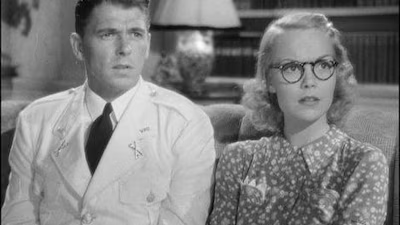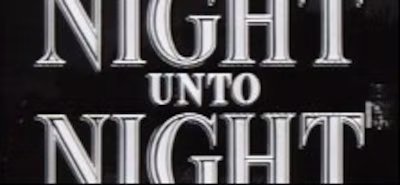In the 1960s transitioning from acting to politics was rare. Ronald Reagan was not the first to do it, but he was the first to jump from the screen to the stump and on to credibility as a presidential contender. Reagan's transformation from struggling liberal actor to influential conservative spokesman in five years--and then to the California governorship six years later--is a remarkable and compelling story.
In Becoming Ronald Reagan: The Rise of a Conservative Icon (Potomac Books, University of Nebraska Press) Robert Mann explores Reagan's early life and his career during the 1950s and early 1960s: his growing desire for acclaim in high school and college, his political awakening as a young Hollywood actor, his ideological evolution in the 1950s as he traveled the country for General Electric, the refining of his political skills during this period, his growing aversion to big government, and his disdain for the totalitarian leaders in the Soviet Union and elsewhere. All these experiences and more shaped Reagan's politics and influenced his career as an elected official.
Mann not only demonstrates how Reagan the actor became Reagan the political leader and how the liberal became a conservative, he also shows how the skills Reagan learned and the lessons he absorbed from 1954 to 1964 made him the inspiring leader so many Americans remember and revere to this day. Becoming Ronald Reagan is an indelible portrait of a true American icon and a politician like none other.
Robert Mann is a professor and holds the Manship Chair in Journalism at Manship School of Mass Communication at Louisiana State University. He is the author of numerous books, including Daisy Petals and Mushroom Clouds: LBJ, Barry Goldwater, and the Ad That Changed American Politics, named one of the best political books of 2011 by the Washington Post.
Ronald Reagan

About
Biography
Filmography
Family & Companions
Bibliography
Notes
In January 2001, Reagan fell and broke his hip.
Inducted to the National Cowboy Hall of Fame in Oklahoma City, Oklahoma
Biography
An affable Midwesterner, Ronald Reagan parlayed his athletic good looks and undeniable charisma into a movie career, but it was on the political stage that he achieved his greatest fame, serving two terms as governor of California and ultimately as the 40th President of the United States. "Dutch" Reagan, born on Feb. 6, 1911, in Tampico, Illinois, began his career as a sportscaster in Iowa, broadcasting the games of the Chicago Cubs, before a screen test earned him a contract at Warner Bros. Debuting as a radio announcer in "Love Is on the Air" (1937), he went on to appear in more than 50 films over the next two decades, proving a popular romantic lead in B pictures and a reliable support and/or a hero's stolid pal in the studio's A-list features. Notable roles included George Gipp, Notre Dame's dying football star, in "Knute Rockne--All American" (1940), and a comic turn in "Bedtime for Bonzo" (1951) as a psychology professor who suddenly finds himself in charge of a mischievous chimp. He was also terrific as a compassionate but forceful American soldier in "The Hasty Heart" (1947). After serving as president of the Screen Actors Guild for multiple terms in the 1940s and 1950s, Reagan began to turn his sights to a political career. He served as governor of California from 1967 to 1975 as a member of the Republican party. Following this, he made his first bid for the presidency in 1976, although he ultimately lost the party's nomination to Gerald Ford. Reagan ran again in 1980, this time winning the nomination and then the presidency. He served two terms and was an influential president who was a figure in many of the most notable events of the 1980s, from an assassination attempt on his own life and the rise of "Reaganomics" to the Iran-Contra affair and the War on Drugs, as well as the end of the Cold War and the fall of the Berlin Wall. He returned home to California for his retirement, living with wife Nancy in Bel Air and Santa Barbara. Reagan died on June 4, 2004, of pneumonia and complications from Alzheimer's Disease, and was interred at the Ronald W. Reagan Presidential Library in Simi Valley, California.
Filmography
Cast (Feature Film)
Misc. Crew (Feature Film)
Cast (Special)
Cast (Short)
Misc. Crew (Short)
Articles
Becoming Ronald Reagan

Becoming Ronald Reagan
Life Events
1920
Moved to Dixon, Illinois when he was nine (date approximate)
1937
While in California covering baseball's spring training, spotted by a Warner Bros. agent and offered a screen test
1937
Signed by Warner Bros.; film debut in "Love Is on the Air" playing a radio announcer
1938
First film with future wife Jane Wyman, "Brother Rat"
1940
Played George Gipp in "Knute Rockne--All American"
1940
Portrayed George Armstrong Custer in Michael Curtiz's "Santa Fe Trail"
1940
Acted with Wyman in three films, "An Angel from Texas", "Brother Rat and a Baby" and "Tugboat Annie Sails Again"
1942
Delivered what is considered his finest screen performance in "King's Row"
1947
Managed to testify before HUAC without naming names
1947
Served as president of the Screen Actors Guild
1949
Delivered sensitive performance in Vincent Sherman's "The Hasty Heart", one of two films that year with Patricia Neal (also "John Loves Mary")
1951
Played chimpanzee-raising professor in the schlock movie "Bedtime for Bonzo"
1952
Portrayed major league baseball pitcher Grover Cleveland Alexander in "The Winning Team"
1952
Was one of a group of well-known Democrats who signed a telegram urging Dwight Eisenhower to become their party's candidate for president
1957
Acted opposite second wife Nancy Davis in "Hellcats of the Navy"
1960
Despite being a Democrat, supported Richard Nixon for US President
1962
Registered as a Republican and campaigned for Nixon's unsuccessful bid for the California governorship
1964
Supported Barry Goldwater for US President and gave a ringing endorsement of free enterprise while attacking Communism in a speech known as "A Time for Choosing", telecast as a half-hour paid political spot which raised almost $1 million dollars for the Republican party in the last week of the campaign and launched him as a national political figure
1964
Final feature film, "The Killers"; played brutal crime kingpin who slapped Angie Dickinson around; originally filmed for TV but deemed too violent for the small screen
1965
Published first autobiography, "Where's the Rest of Me?"
1966
Elected as governor of California; served two terms
1968
Entered Republican primary for US Presidency
1969
In February brought in the California Highway Patrol to break a student strike in Berkeley; after three months of escalating violence culminating in bloody riots, brought back the Highway Patrol, bolstered by the Alameda County sheriff's deputies; finally sent in the National Guard and occupied the city for 17 days
1975
Income as a private citizen jumped to $800,000 (from his $49,000 salary as governor), mostly from speaking engagements, a syndicated column in 174 newspapers and a taped weekly commentary to more than 200 radio stations
1976
Challenged incumbent Gerald Ford for the US Presidency during the Republican primary; narrowly lost
1980
Elected President of the United States
1981
Survived assassination attempt of March 30, quipping to his surgeons from the operating table, "Please tell me you're all Republicans"
1984
Re-elected to a second term as US President
1990
Published second memoir "An American Life"
1994
In an open letter to the people of the USA in November, disclosed that he was suffering from Alzheimer's disease
2003
Showtime airs controversial telefilm "The Reagans" after CBS dropped out of the project deciding that it did not present a fair portrayal of the Reagans. Film starred James Brolin and Judy Davis as the Reagans, both were nominated for Golden Globes for their performances.
Photo Collections
Videos
Movie Clip












Trailer












Family
Companions

Bibliography
Notes
In January 2001, Reagan fell and broke his hip.
Inducted to the National Cowboy Hall of Fame in Oklahoma City, Oklahoma
Honorary chairman of the United States Horse Cavalry Association
On Mr. Reagan's 87th birthday in 1998, President Bill Clinton signed a law which allowed the Washington National Airport to be renamed the Ronald Reagan Washington National Airport.
"There can be no security anywhere in the free world if there is no fiscal and economic stability within the United States . . ."They say the world has become too complex for simple answers. They are wrong. There are no easy answers, but there are simple answers. We must have the courage to do what we know is morally right. Winston Churchill said that '. . . When great forces are on the move in the world, we learn we are spirits--not animals . . . There is something going on in time and space, and beyond time and space, which whether we like it or not, spells duty.'"You and I have a rendezvous with destiny. We will preserve for our children this, the last best hope of man on earth, or we will sentence them to take the first step into a thousand years of darkness. If we fail, at least let our children and our children's children say of us we justified our brief moment here. We did all that could be done." --From the conclusion to Regan's 1964 speech "A Time for Choosing"
"In many ways she allowed him to be such a nice guy. Because she made some of the really tough--personally tough--decisions. She took the heat for it, and he would sit there and still be the nice guy. I think they had a unique marriage. Ronald Reagan is a loner. I don't mean that in a derogatory way. He's a man who's comfortable being alone. But the one person who has always been in his world is her. And that was enough. The truth is he didn't need anybody but her." --White House political affairs director (1981-1983) Ed Rollins quoted in Vanity Fair August 1998
"I protect Ronnie from himself. You know, he has a big Irish heart. He trusts everybody, and he doesn't see when he's being blindsided, or when people are acting out of motives that are less than noble. And he never acts upon it once he does. I do." --Nancy Reagan to Canadian Prime Minister Brian Mulroney, from Vanity Fair, August 1998
"These were extraordinary times we ruled in, because we dealt with--and achieved--some of the most momentous events in modern history: the fall of the Soviet Union, the reunification of Germany within NATO, free trade in this hemisphere, and the end of the Cold War. Led by Ronald Reagan, people like Francois Mitterand, Helmut Kohl, Margaret Thatcher, and I contributed in a modest way to remaking our international society. So if the polls went up or polls went down, who cared? If the press said--as they did--that Thatcher and Mulroney were Reagan's poodles, who cared? You know, when you've got a quarterback who can run, who can throw, and who can take a hit--and he's out there in the rain every Sunday--well, that idea got through to the allies. And when it did, everything jelled." --Mulroney quoted in Vanity Fair, August 1998
"In closing, let me thank you, the American people, for giving me the great honor of allowing me to serve as your president. When the Lord calls me home, whenever that day may be, I will leave with the greatest love for this country of ours and eternal optimism for its future. I now begin the journey that will lead me into the sunset of my life. I know that for America there will always be a bright dawn ahead."---Reagan in a letter to the American people announced that he had been diagnosed with Alzheimer's disease www.reaganranch.com 1994













